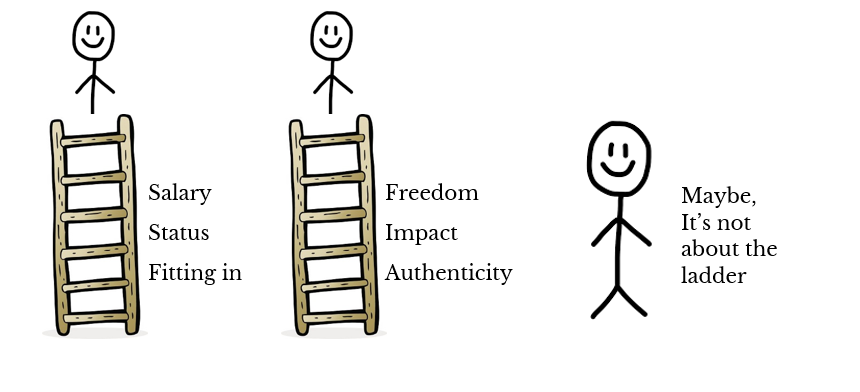According to management professor Anthony Klotz, the ‘Great Resignation’ is upon us. Having had more than a year to re-evaluate life priorities, Klotz predicts that as employees are asked to return to ‘normality’ and their daily commute to their office jobs, this will result in a Great Resignation.
According to a Microsoft survey of 30,000 people from around the world, 41% of employees are considering quitting in the next year. But why now, especially in a world that’s so uncertain and so many worries about the economic impacts of change. Historically these kinds of events have led to people wanting more security and staying put but we know there’s never been anything quite like this before. This event is different, it’s been a global tectonic shift, and so may be the impact.
This unique events that have unfolded with the global pandemic may have led to more stress and uncertainty but also to an opportunity to gain perspective, reconsider and make different choices. I think we’re also less prepared to settle given what we’ve been through and more inclined to make a change. But what does this mean for us as we head into 2022?
Much of the information on this subject is pointing to it being an employees market right now, with a talent shortage, head hunting and many on the move. But it’s not just career related. We’re seeing the same principles play out in the towns we live in, relationships and even social media accounts. The great resignation is about more than us quitting our jobs and 2022 could well be the year of great change as we readjust to life post pandemic.
For some being at home with family gave them time to evaluate what they really wanted - with many realising that was more work/life balance. Everything has seemed harder this year and the mental health implications of this ongoing global pandemic and strain it puts on daily life has also been a contributing factor for a rethink for many.
Additionally, how and where we work is changing, more flexibility and more opportunities. Remote working has changed the face of the job market and led to many reconsidering their city offices and city homes in a mass resignation to the countryside now the daily commute isn’t required.
Here in Aotearoa less skilled migrants have been able to come into the country (and many others leaving to go home) means more heading hunting of local talent and a shortage of supply. We’re in hot demand so the choices go up. At the same time our satisfaction may have gone down because of the pandemic working pressures or feeling neglected as organisations cut pay in favour of offsetting covid losses.
There have also been some who’ve chosen to retire early, sell houses in the market boom, use savings made over the last 2 years of not going anywhere to re-evaluate career changes or part time working.
Either way you look at it Covid is leaving us to question what is normal about our new normal and which bits of normal do we want to return back to. Whether it’s spending lockdown with someone we actually would rather not be with. Going back into an office that suffocates our soul. Or for some the opposite and a realisation of how lucky we are and a new appreciation for all that we have, gratitude for the simple things in life that we realise now are the ones that matter.
It's not surprising to me that this kind of event is having an impact and a shift in our perspective. I had one in my own life approximately a decade ago. It was like an earthquake in my soul that caused a tectonic shift in everything as I placed back the pieces. What followed was my own personal great resignation. I left my HR career and started writing books. I left my beach house in Raglan and went to live in Asia for a while. I left my long term relationship and came out. I also experienced a massive shift in habits favouring ashrams to restaurants and bars for a while!
I liken it to finding the right ladder and here’s how that played out for me. From an early age we’re conditioned to climb the ladder, whether that be in our career prospects and promotions, salary scales or getting married and starting a family. Usually this ladder is based on societal expectations of us and we begin climbing to conform and because we’re told success is at the top of the ladder. This was true for me only to realise when I got to the top “Shit, wrong ladder” Once we reach the top it’s not uncommon to find we’ve been on the wrong ladder and this is what we’re seeing as part of the great resignation.
So here’s me on my two ladders over the last decade and after changing my ladder and climbing again this recent shift post pandemic has lead me to believe that it’s not actually about the ladder at all. Perhaps the perspective we can gain is that we can stop climbing?
It might resonate for you if you’re going through your own great resignation or simply considering how to put the pieces back together following the pandemic and 2 years of uncertainty. Which bits of normal are you wanting to return to?
Looking for support in a career change? Check out my 2021 book I Love Mondays for practical guidance and strategies. After all there’s probably been no better time to design your career around your wish list!


